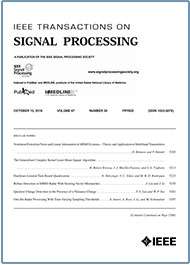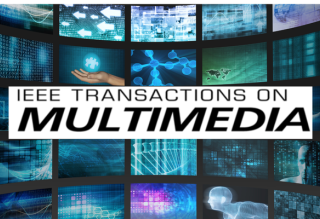- Our Story
- Publications & Resources
- Publications & Resources
- Publications
- IEEE Signal Processing Magazine
- IEEE Journal of Selected Topics in Signal Processing
- IEEE Signal Processing Letters
- IEEE Transactions on Computational Imaging
- IEEE Transactions on Image Processing
- IEEE Transactions on Information Forensics and Security
- IEEE Transactions on Multimedia
- IEEE Transactions on Signal and Information Processing over Networks
- IEEE Transactions on Signal Processing
- IEEE TCI
- IEEE TSIPN
- Data & Challenges
- Submit Manuscript
- Guidelines
- Information for Authors
- Special Issue Deadlines
- Overview Articles
- Top Accessed Articles
- SPS Newsletter
- SigPort
- SPS Resource Center
- Publications FAQ
- Blog
- News
- Dataset Papers
- Conferences & Events
- Community & Involvement
- Professional Development
- For Volunteers
- Information for Authors-OJSP
-
Home
Waveforms for Computing Over the Air: A groundbreaking approach that redefines data aggregation
Ode to Masterfully Written Textbooks: And remembering Simon Haykin [From the Editor]
Conferences Events IEEE Signal Processing Magazine IEEE SPL Article IEEE TIFS Article IEEE TMM Article IEEE TSP Article Jobs in Signal Processing Lectures Machine Learning Seasonal Schools Signal Processing News SPM Article SPS Distinguished Lectures SPS Newsletter Article SPS Webinar SPS Webinars SPS Webinar Series Webinar webinars -
Our Story
What is Signal Processing?

The technology we use, and even rely on, in our everyday lives –computers, radios, video, cell phones – is enabled by signal processing. Learn More » -
Publications & Resources
-
SPS Resources
- Signal Processing Magazine The premier publication of the society.
- SPS Newsletter Monthly updates in Signal Processing
- SPS Resource Center Online library of tutorials, lectures, and presentations.
- SigPort Online repository for reports, papers, and more.
- SPS Feed The latest news, events, and more from the world of Signal Processing.
-
SPS Resources
-
Conferences & Events
-
Community & Involvement
-
Membership
- Join SPS The IEEE Signal Processing Magazine, Conference, Discounts, Awards, Collaborations, and more!
- Chapter Locator Find your local chapter and connect with fellow industry professionals, academics and students
- Women in Signal Processing Networking and engagement opportunities for women across signal processing disciplines
- Students Scholarships, conference discounts, travel grants, SP Cup, VIP Cup, 5-MICC
- Young Professionals Career development opportunities, networking
- Get Involved
-
Technical Committees
- Applied Signal Processing Systems
- Audio and Acoustic Signal Processing
- Bio Imaging and Signal Processing
- Computational Imaging
- Image Video and Multidimensional Signal Processing
- Information Forensics and Security
- Machine Learning for Signal Processing
- Multimedia Signal Processing
- Sensor Array and Multichannel
- Signal Processing for Communication and Networking
- Signal Processing Theory and Methods
- Speech and Language Processing
- Technical Working Groups
- More TC Resources
-
Membership
-
Professional Development
-
Professional Development
- Signal Processing Mentorship Academy (SigMA) Program
- Micro Mentoring Experience Program (MiME)
- Distinguished Lecturer Program
- Distinguished Lecturers
- Distinguished Lecturer Nominations
- Past Lecturers
- Distinguished Industry Speaker Program
- Distinguished Industry Speakers
- Distinguished Industry Speaker Nominations
- Industry Resources
- IEEE Training Materials
- Jobs in Signal Processing: IEEE Job Site
-
Career Resources
- SPS Education Program Educational content in signal processing and related fields.
- Distinguished Lecturer Program Chapters have access to educators and authors in the fields of Signal Processing
- Job Opportunities Signal Processing and Technical Committee specific job opportunities
- Job Submission Form Employers may submit opportunities in the area of Signal Processing.
-
Professional Development
-
For Volunteers
-
For Board & Committee Members
- Board Agenda/Minutes* Agendas, minutes and supporting documentation for Board and Committee Members
- SPS Directory* Directory of volunteers, society and division directory for Board and Committee Members.
- Membership Development Reports* Insight into the Society’s month-over-month and year-over-year growths and declines for Board and Committee Members
-
For Board & Committee Members
Popular Pages
Today's:
- Information for Authors
- (ICME 2026) 2026 IEEE International Conference on Multimedia and Expo
- (ASRU 2025) 2025 IEEE Automatic Speech Recognition and Understanding Workshop
- Information for Authors-SPL
- IEEE Transactions on Multimedia
- IEEE Transactions on Image Processing
- IEEE Transactions on Information Forensics and Security
- Conference Call for Papers
- Guidelines
- Membership
- Information for Authors OJSP
- Signal Processing Mentorship Academy (SigMA) Program
- Publications & Resources
- Submit a Manuscript
- Call for Papers for ICASSP 2026 Now Open!
All time:
- Information for Authors
- Submit a Manuscript
- IEEE Transactions on Image Processing
- IEEE Transactions on Information Forensics and Security
- IEEE Transactions on Multimedia
- IEEE Transactions on Audio, Speech and Language Processing
- IEEE Signal Processing Letters
- IEEE Transactions on Signal Processing
- Conferences & Events
- IEEE Journal of Selected Topics in Signal Processing
- Information for Authors-SPL
- Conference Call for Papers
- Signal Processing 101
- IEEE Signal Processing Magazine
- Guidelines
Last viewed:
- (ICME 2025) 2025 IEEE International Conference on Multimedia and Expo
- Call for Proposals: IEEE MLSP 2026
- (ICME 2026) 2026 IEEE International Conference on Multimedia and Expo
- (ICASSP 2022) 2022 IEEE International Conference on Acoustics, Speech and Signal Processing
- (ICASSP 2023) 2023 IEEE International Conference on Acoustics, Speech and Signal Processing
- (ICASSP 2025) 2025 IEEE International Conference on Acoustics, Speech and Signal Processing
- Nominate a Colleague for a 2025 IEEE Signal Processing Society Award
- (ICIP 2026) 2026 IEEE International Conference on Image Processing
- (SPAWC 2025) 2025 IEEE Workshop on Signal Processing and Artificial Intelligence for Wireless Communications
- (ASRU 2025) 2025 IEEE Automatic Speech Recognition and Understanding Workshop
- (ICASSP 2026) 2026 IEEE International Conference on Acoustics, Speech, and Signal Processing
- VEELA - Vessel Extraction and Extrication for Liver Analysis
- Unified EDICS
- IEEE Transactions on Multimedia
- Video of the month: What is Signal Processing?
A Framework of Adaptive Multiscale Wavelet Decomposition for Signals on Undirected Graphs
You are here
Transactions on Signal Processing
Publications & Resources
For Authors
Top Reasons to Join SPS Today!
1. IEEE Signal Processing Magazine
2. Signal Processing Digital Library*
3. Inside Signal Processing Newsletter
4. SPS Resource Center
5. Career advancement & recognition
6. Discounts on conferences and publications
7. Professional networking
8. Communities for students, young professionals, and women
9. Volunteer opportunities
10. Coming soon! PDH/CEU credits
Click here to learn more.
A Framework of Adaptive Multiscale Wavelet Decomposition for Signals on Undirected Graphs
The state-of-the-art graph wavelet decomposition was constructed by maximum spanning tree (MST)-based downsampling and two-channel graph wavelet filter banks. In this work, we first show that: 1) the existing MST-based downsampling could become unbalanced, i.e., the sampling rate is far from 1/2, which eventually leads to low representation efficiency of the wavelet decomposition; and 2) not only low-pass components, but also some high-pass ones can be decomposed to potentially achieve better decomposition performance. Based on these observations, we propose a new framework of adaptive multiscale graph wavelet decomposition for signals defined on undirected graphs. Specifically, our framework consists of two phases. Phase 1, called pre-processing, addresses the downsampling unbalance issues. We design maximal decomposition level estimation, unbalance detection, and unbalance reduction algorithms such that the downsampling rates of all levels are close to 1/2. Phase 2 concerns about adaptively finding low- or high-pass components that are worthy to be decomposed to improve the compactness of the decomposition. We suggest a graph signal Shannon-entropy-based adaptive decomposition algorithm. With applications on synthetic and real-world graph signals, we demonstrate that our framework provides better performance in terms of downsampling balance and signal compression, compared with other graph wavelet decomposition methods.
SPS Social Media
- IEEE SPS Facebook Page https://www.facebook.com/ieeeSPS
- IEEE SPS X Page https://x.com/IEEEsps
- IEEE SPS Instagram Page https://www.instagram.com/ieeesps/?hl=en
- IEEE SPS LinkedIn Page https://www.linkedin.com/company/ieeesps/
- IEEE SPS YouTube Channel https://www.youtube.com/ieeeSPS
Home | Sitemap | Contact | Accessibility | Nondiscrimination Policy | IEEE Ethics Reporting | IEEE Privacy Policy | Terms | Feedback
© Copyright 2025 IEEE - All rights reserved. Use of this website signifies your agreement to the IEEE Terms and Conditions.
A public charity, IEEE is the world's largest technical professional organization dedicated to advancing technology for the benefit of humanity.











